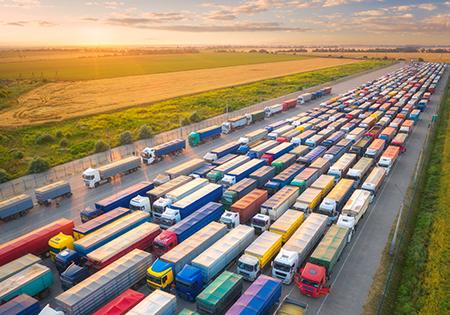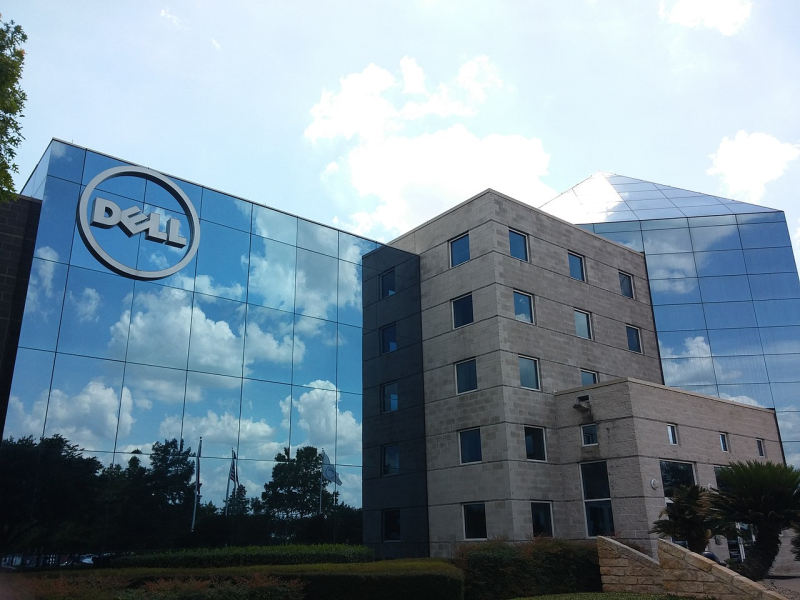
Starting June 1st, 2023 Our warehouse fee will be $0.65/cubic foot per month
In effort to lower the warehouse storage fee during inflation, we have went narrow aisle racking.This construction took us four months but the project is finally completed. With narrow aisle racking, we are able to drop storage by 24%.We as partners will go through this inflation together.
12/03/2024
The logistics industry stands at a critical juncture, facing one of the most challenging periods in recent history. With freight recessions and mounting pressures, it is clear that the traditional methods of addressing challenges are no longer sufficient. The transportation sector has evolved into an increasingly complex global network, and North America’s logistics landscape — valued at $2 trillion — is characterized by fragmentation and inefficiencies that hinder economic resilience and sustainability.
In North America, the logistics sector is home to nearly 1 million for-hire carrier companies, the majority of which are small fleets operating fewer than six trucks. This fragmentation creates systemic inefficiencies that are impeding the industry’s ability to adapt to rapid changes, including evolving international trade, geopolitical shifts, and emerging technologies. To overcome these challenges, the industry requires a comprehensive, unified approach that fosters collaboration across all sectors.
Moving forward, the logistics industry cannot afford to rely on small, incremental improvements. The complexities of today's challenges demand a more transformative strategy. Leading the way will require logistics leaders to break free from traditional, transactional business relationships and foster an ecosystem of collaboration. This means embracing vulnerability, trust, and shared purpose to unite stakeholders across the supply chain, including suppliers, customers, research partners, and even competitors.
One example of how collaboration can reshape the logistics landscape is Smart Crossroads, a pioneering initiative between Wabash and Purdue University. This project brings together transportation fleets, third-party logistics providers, retail shippers, and innovators in technology, such as AI and autonomous vehicles, to create transparency in the fragmented logistics ecosystem. By sharing insights and developing innovative solutions, Smart Crossroads addresses critical issues like data connectivity and operational inefficiencies.
This initiative showcases the power of collaboration — not just as a transactional partnership but as a way to co-create transformative solutions that can drive systemic improvements across the entire logistics network..
Related posts:
👉 Container Shipping Challenges in 2024: Navigating Risks and Ensuring Reliability
A modest improvement in freight efficiency could have far-reaching effects on both the economy and the environment. For instance, improving freight efficiency by just 1% could reduce the number of trucks on the road by 40,000, saving 250 million gallons of fuel annually, and significantly cutting operating costs and emissions. To achieve such results, leaders must prioritize collective problem-solving and be willing to break traditional boundaries to work together across the supply chain.
The future of logistics will require a new kind of leadership — one that goes beyond individual corporate interests. Today's leaders must demonstrate courage, empathy, and trust in order to facilitate meaningful collaboration and challenge outdated business paradigms. The key question is no longer, “What does my company want?” but rather, “What does the ecosystem need to thrive?”
By focusing on long-term, collective progress rather than short-term gains, leaders can help strengthen the global supply chain, creating a more resilient, sustainable, and interconnected logistics network.
The logistics industry’s future depends on bold, visionary leadership that is willing to drive systemic change. By fostering collaboration and building an ecosystem grounded in shared purpose and trust, logistics leaders have the opportunity to transform the industry into a more efficient and sustainable global network. The time has come to rethink how logistics ecosystems can work together to overcome fragmentation and inefficiencies, creating lasting solutions that benefit everyone in the supply chain.
Brent L. Yeagy, with over 25 years of experience in the automotive and commercial transportation industries, continues to lead Wabash’s strategic direction as president and CEO since 2018.
This article, contributed by Wabash’s Brent L. Yeagy, highlights the importance of new leadership and collaborative innovation in reshaping the logistics industry for the future.
This guest article was written and edited in alignment with Worldcraft Logistics' editorial guidelines to offer valuable insights to our readers. The views expressed here may not necessarily reflect those of WCL.
SEO
Digital Marketing/SEO Specialist
Simon Mang is an SEO and Digital Marketing expert at Wordcraft Logistics. With many years of experience in the field of digital marketing, he has shaped and built strategies to effectively promote Wordcraft Logistics' online presence. With a deep understanding of the logistics industry, I have shared more than 500 specialized articles on many different topics.

Hot News
08/05/2024

Hot News
02/23/2023

Hot News
02/23/2023

Hot News
02/06/2023
Hot News
02/07/2023